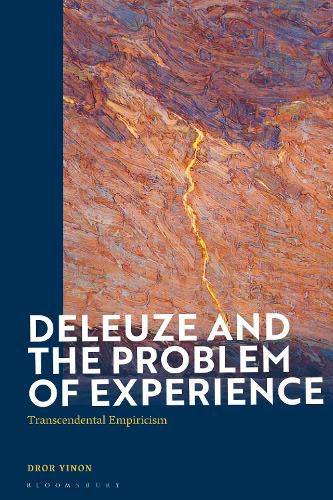Readings Newsletter
Become a Readings Member to make your shopping experience even easier.
Sign in or sign up for free!
You’re not far away from qualifying for FREE standard shipping within Australia
You’ve qualified for FREE standard shipping within Australia
The cart is loading…






This comprehensive reframing of Gilles Deleuze as a transcendental empiricist delves into his seminal Difference and Repetition to unearth a system that inverts the Kantian worldview. By focusing on Deleuze's theory of the faculties, we can see how he builds a transcendental system of thought that defies the predictability of empirical experience.
The place of experience in the way we understand our relation to the world, to others and to ourselves, is a central theme of modern philosophy. Deleuze's transcendental empiricism points to an unexplored direction in this major philosophical preoccupation. It is a road not taken that, against the tide of his times, rejected the possibility of an immediate contact with being and embraced the possibility of reaching a 'real' that lay beneath many layers of mediation. Unlike many of his contemporaries, Deleuze neither subscribed to a specific philosophical school nor did he try to establish one. This new understanding of him as a transcendental empiricist not only helps to situate his work in the constellation of twentieth century French philosophers but also helps us to understand a philosopher for whom difference and heterogeneity were central to his own philosophical corpus.
$9.00 standard shipping within Australia
FREE standard shipping within Australia for orders over $100.00
Express & International shipping calculated at checkout
This comprehensive reframing of Gilles Deleuze as a transcendental empiricist delves into his seminal Difference and Repetition to unearth a system that inverts the Kantian worldview. By focusing on Deleuze's theory of the faculties, we can see how he builds a transcendental system of thought that defies the predictability of empirical experience.
The place of experience in the way we understand our relation to the world, to others and to ourselves, is a central theme of modern philosophy. Deleuze's transcendental empiricism points to an unexplored direction in this major philosophical preoccupation. It is a road not taken that, against the tide of his times, rejected the possibility of an immediate contact with being and embraced the possibility of reaching a 'real' that lay beneath many layers of mediation. Unlike many of his contemporaries, Deleuze neither subscribed to a specific philosophical school nor did he try to establish one. This new understanding of him as a transcendental empiricist not only helps to situate his work in the constellation of twentieth century French philosophers but also helps us to understand a philosopher for whom difference and heterogeneity were central to his own philosophical corpus.